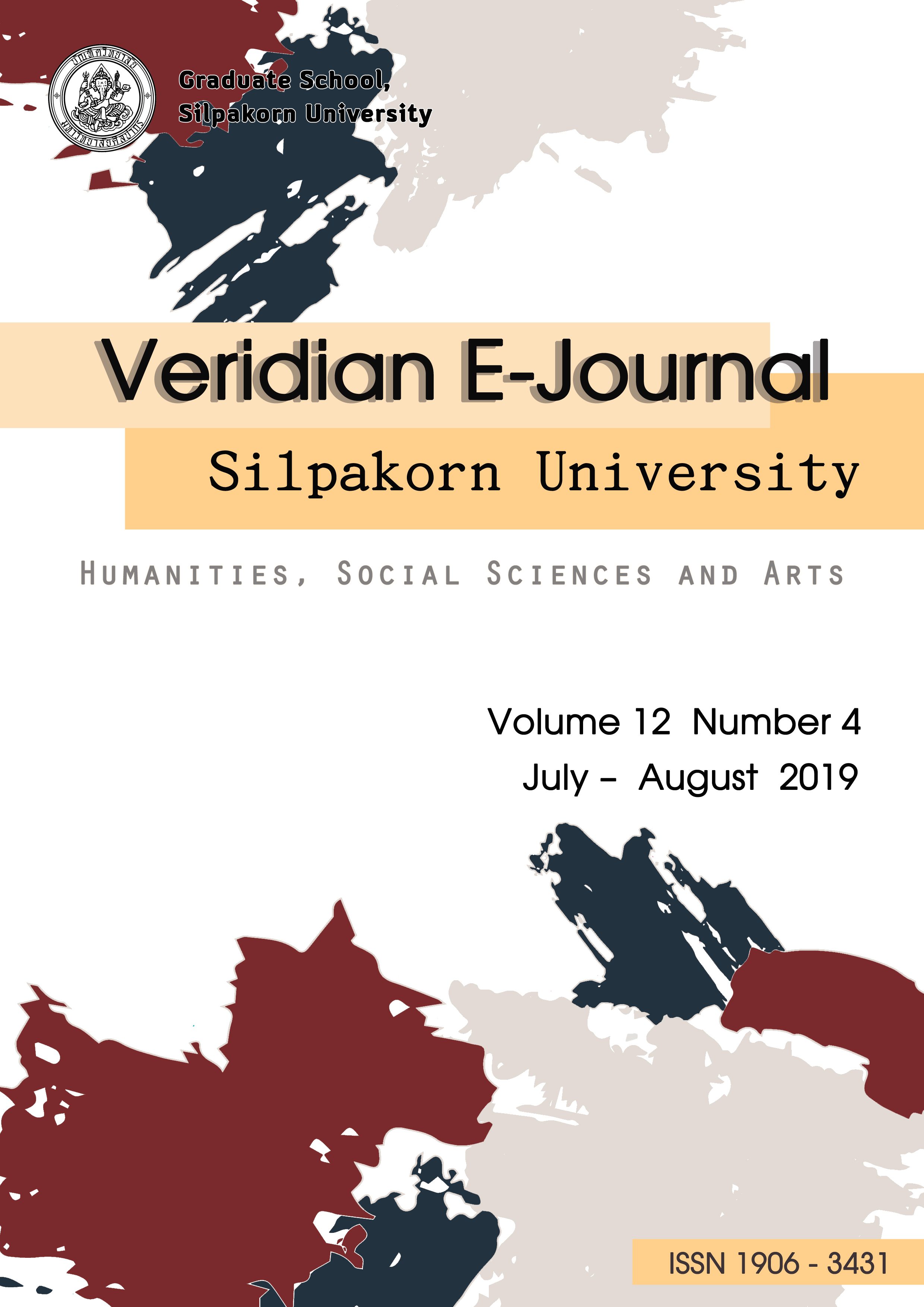ตัวแบบสมการโครงสร้างการพัฒนาอย่างยั่งยืนของศูนย์การเรียนรู้ชุมชนปลอดขยะต้นแบบ ของกรมส่งเสริมคุณภาพสิ่งแวดล้อม (A structural equation model of sustainable development for prototype communities' Zero Waste Learning Center of The Department of Environmental Quality Promotion)
Main Article Content
บทคัดย่อ
การวิจัยนี้มุ่งศึกษาการพัฒนาความยั่งยืนของศูนย์การเรียนรู้ชุมชนปลอดขยะต้นแบบ ในการเป็นแนวทางสำหรับการบริหารจัดการขยะและลดปัญหาด้านมลพิษในชุมชนอื่น โดยศึกษาองค์ประกอบการพัฒนาอย่างยั่งยืนของศูนย์การเรียนรู้ชุมชนปลอดขยะต้นแบบ พัฒนาตัวแบบสมการโครงสร้างการพัฒนาอย่างยั่งยืนของศูนย์การเรียนรู้ชุมชนปลอดขยะต้นแบบ ของกรมส่งเสริมคุณภาพสิ่งแวดล้อม จำนวน 3 ชุมชน ได้แก่ ชุมชนหนองโจด จังหวัดนครราชสีมา ชุมชนบ้านโป่งศรีนคร จังหวัดเชียงราย ชุมชนบ้านหัวถนน จังหวัดขอนแก่น รวมถึงนำเสนอแนวทางการพัฒนาอย่างยั่งยืนของศูนย์การเรียนรู้ชุมชนปลอดขยะต้นแบบ โดยมีตัวแปรสังเกตได้ 19 ตัวแปร เก็บรวบรวมข้อมูล 400 ราย ด้วยวิธีการสุ่มตัวอย่างแบบชั้นภูมิตามสัดส่วนของประชากรและจึงสุ่มตัวอย่างแบบง่ายตามลำดับ วิเคราะห์ข้อมูลด้วยสถิติเชิงพรรณนา การวิเคราะห์องค์ประกอบเชิงยืนยัน และการวิเคราะห์สมการโครงสร้างของตัวแบบ
ผลการวิเคราะห์พบว่าตัวแบบมีความสอดคล้องกับข้อมูลเชิงประจักษ์ โดยองค์ประกอบด้านภาวะผู้นำการเปลี่ยนแปลง วัฒนธรรมองค์การเชิงสร้างสรรค์ การบริหารงานแบบมีส่วนร่วม การประสานงาน การพัฒนาอย่างยั่งยืน โดยปัจจัยองค์ประกอบดังกล่าว ร่วมกันอธิบายการพัฒนาอย่างยั่งยืนของศูนย์การเรียนรู้ได้ในระดับมาก นอกจากนี้ยังพบว่าการพัฒนาความยั่งยืนของศูนย์การเรียนรู้ฯ ควรให้น้ำหนักกับด้านภาวะผู้นำการเปลี่ยนแปลงมากที่สุด รองลงมาเป็นด้านการประสานงาน ด้านวัฒนธรรมองค์การเชิงสร้างสรรค์ และด้านการบริหารงานแบบมีส่วนร่วม เนื่องจากมีอิทธิพลโดยตรงและอิทธิพลทางอ้อม ต่อการพัฒนาความยั่งยืนของศูนย์การเรียนรู้ชุมชนปลอดขยะต้นแบบ
This research aims to study the sustainable development of the Zero Waste Community Learning Center. As a guide to waste management and reducing pollution problems in the other communities by studying the sustainable development elements of the Zero Waste Community Learning Center of The Department of Environmental Quality Promotion (Nakhon Ratchasima, Chiang Rai, Khon Kaen). Then creating a sustainable development equation model of the Zero Waste Community Learning Center. Including, the sustainable development guidelines for the Zero Waste Learning Center. Empirical data with 19 observed variables, sample size was 400 derived from stratified sampling and random sampling method respectively. Perform descriptive statistical analysis, Confirmatory Factor Analysis (CFA) and Structural Equation Model analysis (SEM).
The finding showed that the model was consistent with empirical data. The element wasTransformational leadership, Constructive culture, Participation management, Coordination, and Sustainability development can explain the sustainable development of the learning center at a high level. In addition, it was found that the Zero Waste Community Learning Center should give the most weight to Transformational leadership then followed by Coordination, Constructive culture, and Participation management. Because of direct and indirect influence on sustainable development for Zero Waste Learning Center.

